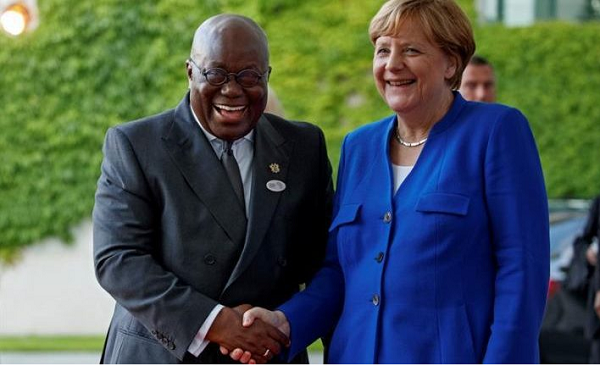
Long live Ghana-German relations
Ghana-German relations date back to many years when the first German missionaries arrived in the then Gold Coast.
Advertisement
The relationship that was established by the missionaries changed into a more vibrant all-encompassing friendship in the post-independence era and has since seen the two countries engage in various forms of cooperation that have strengthened the rapport further.
The friendship has been very beneficial to both countries.
The Ghanaian-German Investment Protection Agreement that took effect in 1998 has, in no small measure, helped boost trade relations. The volume of trade between them has, over the years, been growing steadily.
Currently, Germany is among the top seven countries from where Ghana gets its imports.
Ghanaian exports to Germany have also been increasing.
Certainly, Ghana is a priority country of German bilateral development cooperation and assistance, as the German Technical Cooperation (Deutsche Gesellschaft für Internationale Zusammenarbeit – GIZ) has had an office in Ghana since 1983, while the KfW Development Bank and the Deutsche Investitions-und Entwicklungsgesellschaft (DEG) also have offices in the country.
The DEG has, since 2008, had its office in Ghana and basically offers support to small and medium companies.
Also, the DW Akademie and the Savings Banks Foundation for International Cooperation are engaged in development cooperation with Ghana.
Notably, German development cooperation with Ghana has focused on governance through the offer of advice on the drafting of policies and their implementation on a
Ghana has also benefited from advice on agriculture, from drafting policies through to production and marketing and rural funding, as well as sustainable economic development, such as advancement in the financial system and vocational training.
It is worthy to note that at the inter-governmental negotiations in June 2015, Germany agreed to extend cooperation to include solid waste management, particularly the recycling of electrical and electronic waste. True to this, the sod has been cut for the construction of a waste plant at Agbogbloshie in Accra.
As the Daily Graphic lauds Germany for the good work it is doing in the country and applauds the German Chancellor, Angela Merkel, for her visit, we ask the two countries to use the visit to take their relationship a notch higher, as the delegation accompanying the German leader attests to the importance Germany attaches to the visit.
We also think that as a nation, we should use the chancellor’s visit to take stock of our lives.
At a joint press conference addressed by the two leaders,
We urge all citizens to contribute their quota to ensure a corruption-free
We further show our appreciation to Germany for the part it is playing, during its Presidency of the G8, to ensure the realisation of a €100 million compact for Africa, from which Ghana will be a beneficiary.
But we urge the two countries to increase their trade, especially Ghana’s exports to Germany, to bring them near to its imports from Germany.
Long live Ghana-Germany relations.



